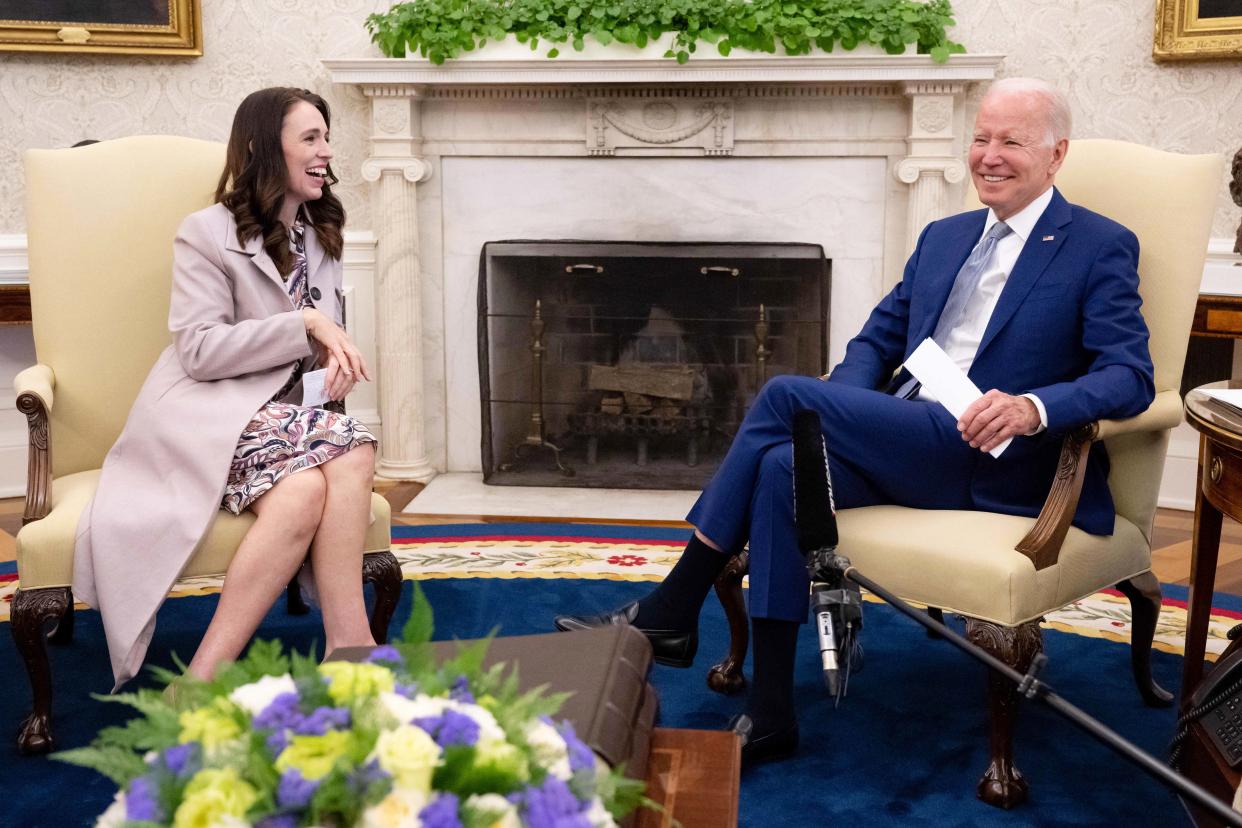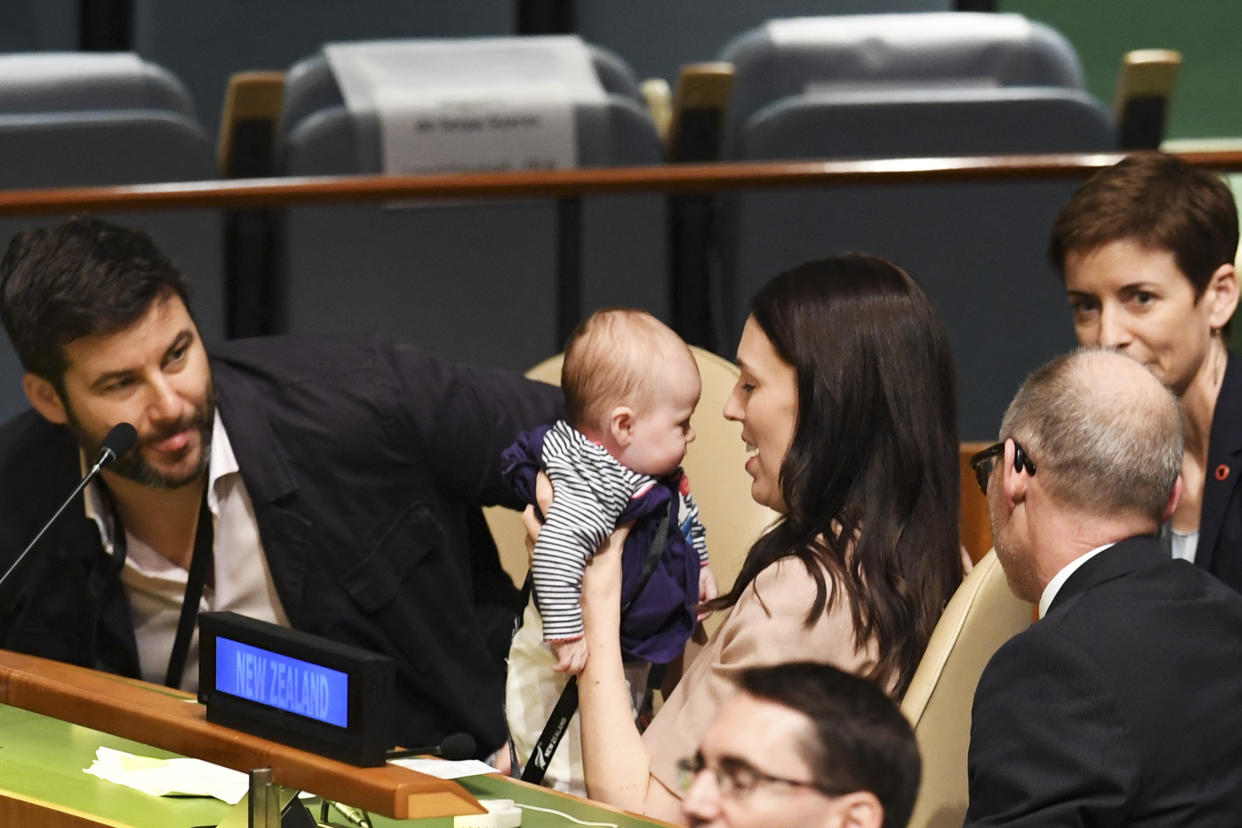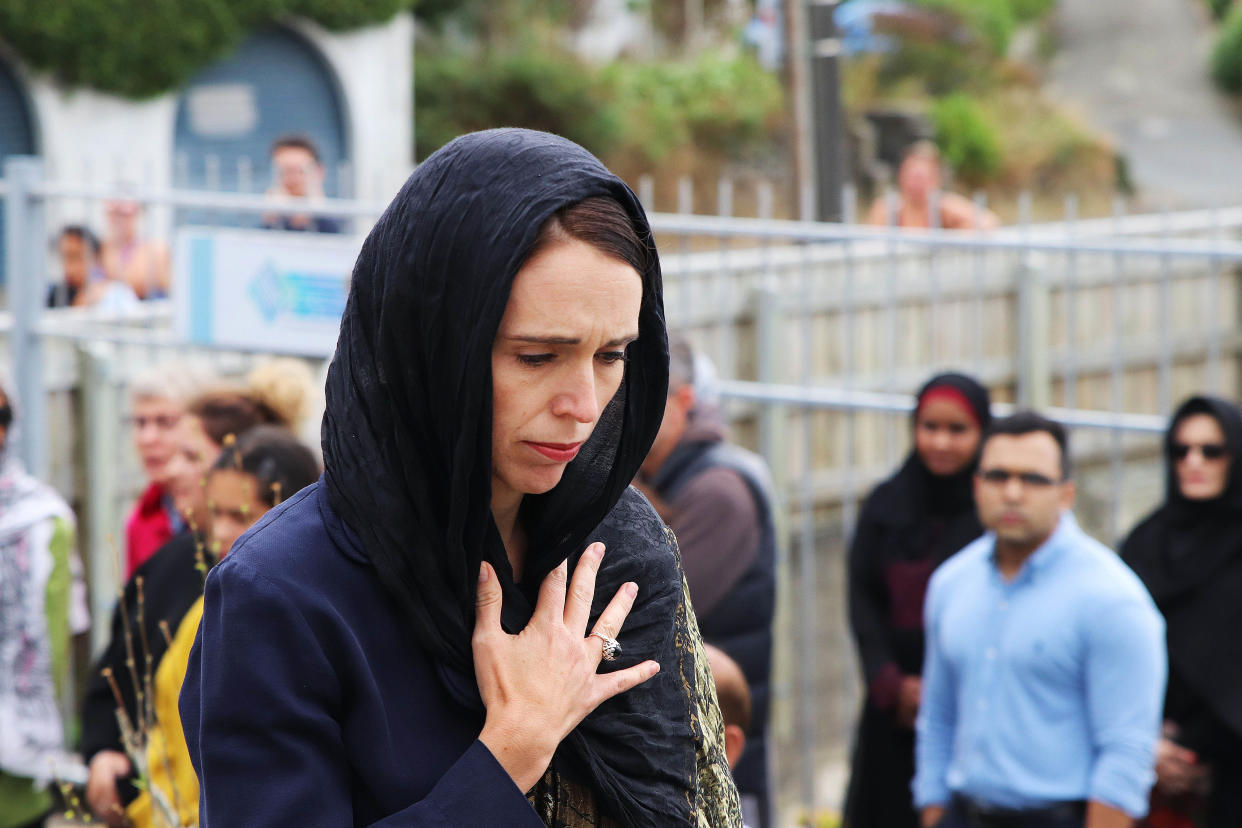New Zealand's Jacinda Ardern quits as leader citing burnout
New Zealand Prime Minister Jacinda Ardern announced Thursday that she will step down, saying she no longer had “enough in the tank” after a premiership defined by her response to a series of crises.
Ardern, 42, has become a global progressive icon since her election in 2017 and won praise for her handling of the nation’s worst mass shooting and the beginning of the pandemic. But her approval ratings have plummeted at home, jeopardizing her re-election prospects and intensifying the vitriolic abuse she has experienced throughout her time in office.
“With such a privileged role comes responsibility — the responsibility to know when you are the right person to lead, and also when you are not,” Ardern said in a surprise announcement in Napier, where her governing center-left Labour Party is holding a caucus retreat. “I know what this job takes, and I know that I no longer have enough in the tank to do it justice.”
She said she would resign as prime minister no later than Feb. 7 and would not seek re-election to Parliament later this year.
'Weighty' decisions
“This has been the most fulfilling 5½ years of my life, but it has also had its challenges,” Ardern told reporters. “Among an agenda focused on housing, child poverty and climate change, we encountered a major biosecurity incursion, a domestic terror event, a major natural disaster, a global pandemic and an economic crisis.
“The decisions that have had to be made have been continual, and they have been weighty,” she said.
Ardern, who was the world’s youngest female leader when she first took office, has faced a number of challenges including the mass shooting at two mosques in Christchurch that killed 51 people, a deadly volcanic eruption, an outbreak of cattle disease and the coronavirus.
“Her international reputation in many ways has been made out of dealing with things that no one would have wanted,” said Grant Duncan, an associate professor at Massey University in Auckland.

Ardern was praised for her “zero-Covid” approach to the pandemic and the managed transition away from it once vaccines became available, allowing life inside the country to continue largely as normal while minimizing deaths. She was a highly visible face of New Zealand’s pandemic response, urging the country’s “team of 5 million” people to face the crisis together at near-daily public briefings.
“Covid-19 in particular really sorted the sheep from the goats when it came to leadership around the world,” Duncan said.
Though Ardern’s pandemic strategy helped propel her party to a historic landslide win in 2020, it also drew criticism that it was too strict, with the entire nation going into lockdown in August 2021 after the discovery of a single case. An official inquiry into the government’s response is underway, and many of Ardern’s right-wing critics cheered her resignation announcement Thursday.
The Labour Party will hold a vote for a new leader Sunday. If that person receives more than two-thirds of caucus support, Ardern said, she will resign soon after and the new leader will be sworn in as prime minister. Otherwise, the vote will go to the wider party membership.
Ardern said she plans to remain in Parliament until April, avoiding the need for a snap vote in her suburban Auckland electorate. Beyond that, she said, she has no plans other than spending time with her family.
Ardern was the world’s second elected head of government to give birth while in office, bringing her 3-month-old daughter, Neve, to the floor of the United Nations General Assembly in New York in 2018.

In her remarks Thursday, Ardern said that her partner, television presenter Clarke Gayford — whose wedding to Ardern was postponed by the pandemic — and Neve were “the ones that have sacrificed the most out of all of us.”
“To Neve: Mum is looking forward to being there when you start school this year,” she said. “And to Clarke — let’s finally get married.”
Ardern had faced the prospect of a tough campaign in the next election, which she said Thursday would be held Oct. 14. Along with a perceived increase in violent crime, New Zealand is facing many of the same issues as other countries, including a housing crisis, income inequality and surging inflation.
Though recent polls have put Labour behind the conservative National Party, Ardern said that had not affected her decision.
“I’m not leaving because I believe we can’t win the election, but because I believe we can and will, and we need a fresh set of shoulders for that challenge,” she said.
Tributes to Ardern have poured in from New Zealand politicians and leaders around the world.
“Jacinda Ardern has shown the world how to lead with intellect and strength,” Australian Prime Minister Anthony Albanese said on Twitter. “She has demonstrated that empathy and insight are powerful leadership qualities.”

Christopher Luxon, leader of the opposition National Party, said Ardern had made a significant contribution to the country and was a “strong ambassador for New Zealand on the world stage.”
“Her leadership in the aftermath of the Christchurch terror attacks was simultaneously strong and compassionate, and is something she can be proud of,” he said.
Former New Zealand Prime Minister Helen Clark said Ardern had done an “extraordinary job” and lamented the rising threats she has faced from far-right groups that have embraced vaccine misinformation and extremism.
“The pressures on prime ministers are always great, but in this era of social media, clickbait and 24/7 media cycles, Jacinda has faced a level of hatred and vitriol which in my experience is unprecedented in our country,” she said.
Ardern said Thursday that while the heightened security risk “does have an impact,” it was not the reason for her resignation.
She said she hoped New Zealanders would remember her “as someone who always tried to be kind.”
She said she hoped to leave behind “a belief that you can be kind but strong, empathetic but decisive, optimistic but focused — that you can be your own kind of leader, one that knows when it’s time to go.”
